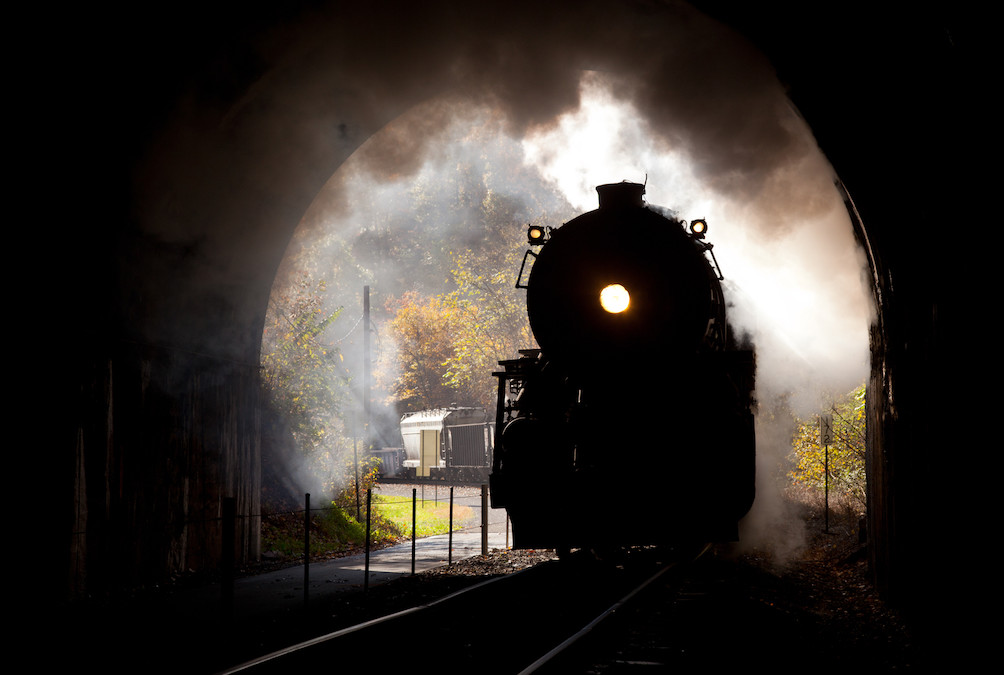Now all that fear hasn’t held me back as much as you might think. Perhaps because it was such a constant, I developed ways of dealing with it early on, from “I think I’m going to throw up” courage to “head in the sand” avoidance to attempting to rationally convince myself that fear is simply “false evidence appearing real”. As my psychological understanding grew more sophisticated, I graduated to fear-busting techniques ranging from hypnosis to autogenics and from Neuro-Linguistic Programming (NLP) to Thought-Field Therapy (TFT).
When I came across the inside-out understanding, it became apparent to me that the reason I felt fear so much of the time was because the world I was creating inside my head was such a dangerous place. Given the way I was making up the world, fear was a sane response. So trying to technique my way out of fear when the world looked so scary was a bit like trying to tell someone falling out of an airplane without a parachute that hitting the ground isn’t going to hurt. You might convince them of it for a moment or two while they’re looking into your eyes, but as soon as they look down again, all bets are off.
Over time, as I came to see that a) we live in a world of thought and b) we can always think again, my fear began to wane. I actually remember a moment in time, sitting on my sofa and thinking about the challenges of my life, when I realized something felt different and a bit “off”. When I tried to make sense of that unusual “off” feeling, I realized what it was. I wasn’t afraid.
While I’ve experienced that sense of fearlessness more and more over the ensuing years, I’ve still had an uncomfortable relationship with fear. On the one hand, I knew that 99.9% of the time it wasn’t telling me anything I needed to know and I could essentially ride it out until it passed. I even knew that the .01% of the time that fear was alerting me to a clear and present danger, it didn’t feel the same. I experienced that kind of almost impersonal fear as a sense of calm, high-energy alertness, and was often at my absolute best in those kinds of situations.
But on the other hand, life without fear felt so good that I still kind of dreaded the next time a wave of fear would wash over me. Even though I theoretically knew I wouldn’t drown in it, it still kind of felt that I might.
So when a friend told me that she experienced fear as a part of the kindness of the human design, I had no idea what she was talking about. For me, fear was the emotional equivalent of the human appendix – a vestigial organ that may have once served a useful purpose but now just sits there waiting to get infected. When I listened to her describe it, it sounded as essential as a kidney, continually filtering out toxins and impurities from the system.
Here is (in my words) what she said:
At times, when there weren’t many trains leaving the station, it would be relatively easy to hop aboard the trains taking you somewhere interesting and avoid the ones taking you down a rabbit hole. But the busier the train station gets, the harder it is to navigate, and you might even find yourself hopping from train to train, feeling incredibly active and busy but never really getting anywhere in the process.
Now, imagine there was a foolproof way to instantly know whether a particular train of thought was taking you somewhere good. You wouldn’t have to ride the train all the way to its destination to find out where it was headed; you could simply hop off at the next station and wait for another train to come along.
This is the role of fear in the human system:
Whenever you feel fear (or despair, or hopelessness, or righteous anger, or any one of a host of variations on the theme), it’s the design of the system letting you know where that train of thought is heading. It’s telling you to be still – to hop off that train and wait for a new stream of thinking to come along. It’s not telling you anything about the world or even about your capability – it’s simply telling you there’s nothing good waiting for you at the end of this particular train of thought.
It’s like pain – you feel a little bit of pain when you accidentally put your hand too close to a flame to prevent you from feeling a lot of pain (and maybe even doing yourself some damage) if you carry on towards the fire. The discomfort of fear is there to warn you of the larger discomfort (and risk of doing yourself some damage) if you carry on thinking the way you’re thinking.
For me, as a life-long “scaredy cat”, the idea that fear is on my side is taking some getting used to. But knowing there’s something baked into my psyche from birth that will protect me from the innocent misuse of my own imagination is a true comfort. And knowing that all fear is reminding me of is that I’m feeling my own thinking makes it considerably less frightening.
With all my love,
![]()






